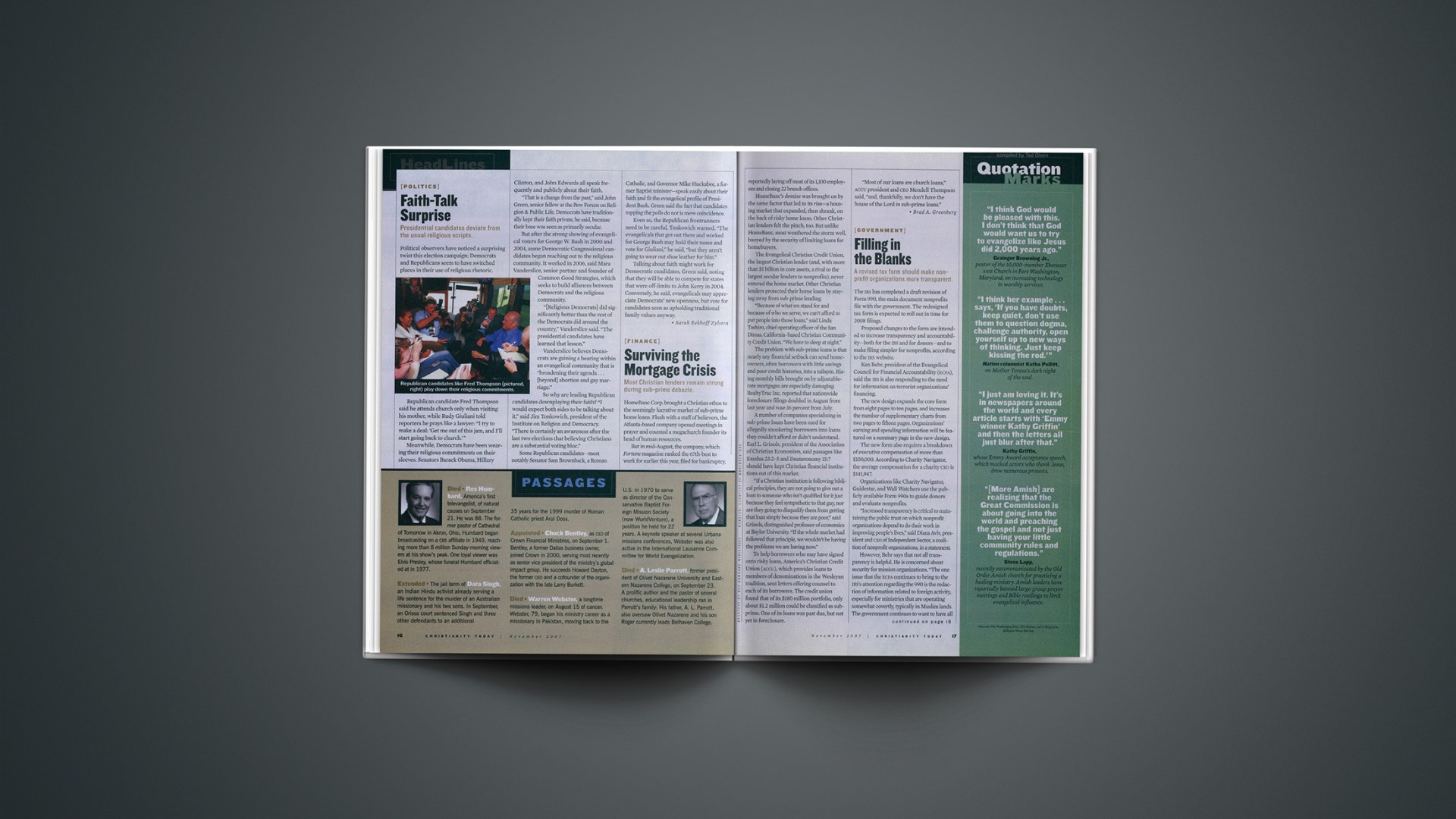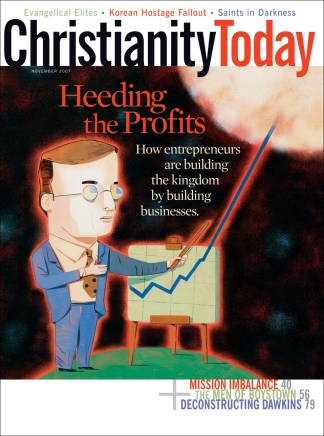Political observers have noticed a surprising twist this election campaign: Democrats and Republicans seem to have switched places in their use of religious rhetoric.
Republican candidate Fred Thompson said he attends church only when visiting his mother, while Rudy Giuliani told reporters he prays like a lawyer: “I try to make a deal: ‘Get me out of this jam, and I’ll start going back to church.'”
Meanwhile, Democrats have been wearing their religious commitments on their sleeves. Senators Barack Obama, Hillary Clinton, and John Edwards all speak frequently and publicly about their faith.
“That is a change from the past,” said John Green, senior fellow at the Pew Forum on Religion & Public Life. Democrats have traditionally kept their faith private, he said, because their base was seen as primarily secular.
But after the strong showing of evangelical voters for George W. Bush in 2000 and 2004, some Democratic Congressional candidates began reaching out to the religious community. It worked in 2006, said Mara Vanderslice, senior partner and founder of Common Good Strategies, which seeks to build alliances between Democrats and the religious community.
“[Religious Democrats] did significantly better than the rest of the Democrats did around the country,” Vanderslice said. “The presidential candidates have learned that lesson.”
Vanderslice believes Demo-crats are gaining a hearing within an evangelical community that is “broadening their agenda … [beyond] abortion and gay marriage.”
So why are leading Republican candidates downplaying their faith? “I would expect both sides to be talking about it,” said Jim Tonkowich, president of the Institute on Religion and Democracy. “There is certainly an awareness after the last two elections that believing Christians are a substantial voting bloc.”
Some Republican candidates—most notably Senator Sam Brownback, a Roman Catholic, and Governor Mike Huckabee, a former Baptist minister—speak easily about their faith and fit the evangelical profile of President Bush. Green said the fact that candidates topping the polls do not is mere coincidence.
Even so, the Republican frontrunners need to be careful, Tonkowich warned. “The evangelicals that got out there and worked for George Bush may hold their noses and vote for Giuliani,” he said, “but they aren’t going to wear out shoe leather for him.”
Talking about faith might work for Democratic candidates, Green said, noting that they will be able to compete for states that were off-limits to John Kerry in 2004. Conversely, he said, evangelicals may appreciate Democrats’ new openness, but vote for candidates seen as upholding traditional family values anyway.
Copyright © 2007 Christianity Today. Click for reprint information.
Related Elsewhere:
Weblog collects links about 2008 presidential candidates’ faith, including:
Faith’s role on the rise in Campaign 08 | A new Pew poll on religion and politics finds that 70 percent of Americans want a president with strong religious beliefs (The Christian Science Monitor)
How religious do we want our presidential candidates to be? (Andrea Cornell Sarvady and Shaunti Feldhahn, The Atlanta Journal-Constitution)
Christianity Today‘s coverage of the 2008 presidential candidates includes:
Latter-Day Politics | Mitt Romney believes American values, not Mormon doctrine, should rule a President. (September 26, 2007)
The Giuliani Choice | Conservative leaders doubt his support among evangelicals will last. (June 5, 2007)
Mitt’s Mormonism and the ‘Evangelical Vote’ | Can conservative Protestants vote for a member of what they consider a cult? (May 31, 2007)
Q&A: Hugh Hewitt | Conservative blogger, political analyst, and radio talk show host Hugh Hewitt on Romney’s bid for the White House. (February 27, 2007)
God’s Will in the Public Square | Democratic Senator Barack Obama gets it mostly right. (September 1, 2006)
More Christianity Today coverage of politics and law is available in our full coverage area.










